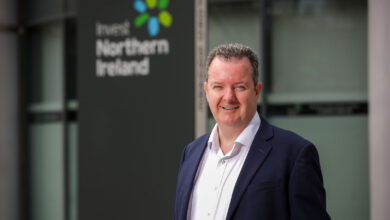NIE contests price control
 The Utility Regulator is considering NIE’s request to refer its price control to the Competition Commission and has also received the final determination on Phoenix.
The Utility Regulator is considering NIE’s request to refer its price control to the Competition Commission and has also received the final determination on Phoenix.
Northern Ireland Electricity’s revenue is regulated by Utility Regulator price control as it holds the monopoly of the province’s transmission and distribution network. The new price control period (RP5) will run from 1 January 2013 to 30 September 2017.
Four aspects of costs are covered by the price control: operating expenditure (opex); capital expenditure (capex); pension costs; and the rate of return on capital investment.
NIE had requested £345 million in opex but the regulator’s final determination approved £271 million. Efficiencies in this budget will be retained by the company.
An initial £606 million request for ‘business as usual’ capex was subsequently increased to £776 million. NIE also submitted a request for £306 million for renewables investment, which was then reduced to £223 million.
The final determination allowed for £396 million in capex and included special arrangements for approving additional capex to accommodate renewables and further interconnection, as envisaged in the Strategic Energy Framework.
On pensions, NIE requested £10.5 million to cover on-going costs and £66.7 million to repair a pension scheme deficit. The regulator accepted the first proposal in full but capped the deficit allowance at £47.5 million. The total pension cost allowance was therefore set at £58 million, which will be reviewed at the next formal pension valuation in 2014.
NIE requested a weighted average cost of capital of 5.34 per cent. The Utility Regulator had initially proposed 4.45 per cent but slightly increased this to 4.55 per cent in its final determination; this applies to all three capital expenditure funds and to the existing regulatory asset base.
Customers, the regulator said, must not pay twice for opex that was re-categorised as capex during the RP4 period and the regulatory asset base (currently worth £32 million) will be adjusted to reflect this decision.
NIE’s proposals, according to the Utility Regulator, would have initially increased average network charges for domestic consumers by £21 (up 16 per cent) while large industrial consumers would see increases of £19,000 per year (up 15 per cent).
When the costs of investment in renewables and interconnection are included, the network charges would increase by a further £4 per year (2.7 per cent) for domestic customers and £11,000 per year (9 per cent) for large industrial customers.
Responding, NIE said that it was unable to accept the RP5 price control and expected the regulator to refer the matter to the Competition Commission. “NIE has not taken this decision lightly,” Managing Director Joe O’Mahony stated. He added that NIE had “worked diligently” to provide a robust business plan with extensive and detailed supporting information.
This would, in his view, have facilitated the Utility Regulator “to determine a price control that will enable NIE to provide an adequate service to its customers over RP5 and for the foreseeable future, and to finance its activities efficiently.” O’Mahony concluded that the final determination “does not come close to achieving that objective.”
In a statement, the Utility Regulator noted NIE’s response and added: “We will take account of the NIE response, along with any other submissions that we receive, and our board will decide on next steps.”
The Competition Commission ruled in favour of Phoenix Gas, in August, following a similar appeal against the Utility Regulator’s final determination regarding the company. Customers may therefore pay an additional £10 on annual gas bills but Phoenix contends that a typical household converting from oil to gas can save £1,000 a year and further investment is needed to expand the gas network.
This ruling was provisional and the Competition Commission submitted its final determination to the Utility Regulator on 28 November. The regulator is obliged to send the determination to Phoenix and the Department of Enterprise, Trade and Investment and publish the report, after allowing DETI not less than 14 days to make any necessary redactions. The final report had not been published by the time of going to press.





